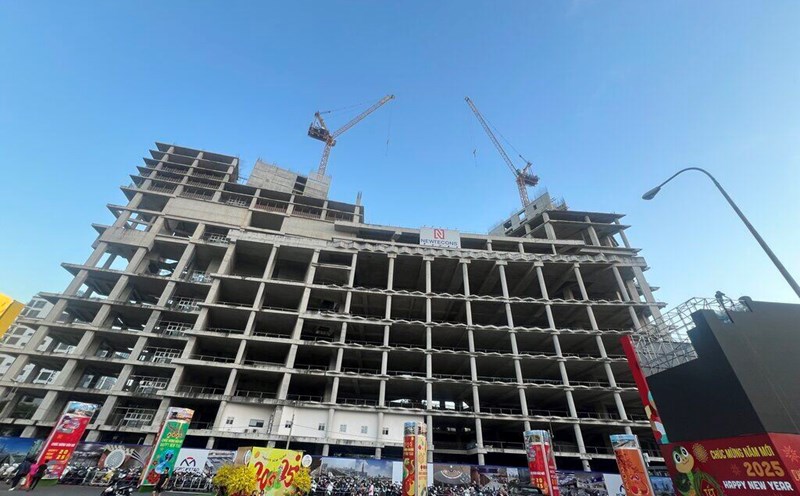According to data from ACB Securities Company (ACBS), the total face value of late-payment bonds in the second quarter of 2025 was VND 25,000 billion, 1.3 times higher than the first quarter. Most of these came from the real estate group, with an increase from VND 8,500 billion to VND 23,100 billion.
According to VIS Rating, there are about VND1,200 billion of bonds with a high risk of being delayed for the first time in August 2025. This is a bond issued by two real estate enterprises with "extremely weak" credit records. In addition, VND14,400 billion of maturing bonds have been late in paying interest, with 4 enterprises related to Van Thinh Phat Group accounting for VND10,500 billion, the remaining bonds are of Novaland, Trung Nam and Hai Phat - all of whom are in the process of debt restructuring.
For example, in the case of Bong Sen Joint Stock Company (JSC), a company related to Ms. Truong My Lan. According to the consolidated financial report sent to the Hanoi Stock Exchange (HNX), Bong Sen Joint Stock Company continues to record a business period below capital, with a loss after tax of nearly 356 billion VND in the first half of 2025. This result has increased the company's total accumulated loss as of June 30, 2025 to nearly VND 3,100 billion. While equity was eroded, down to only VND4,539.3 billion, the total debt to be repaid increased by nearly 9%, to VND9,076 billion.
The company's operations became particularly serious when legal problems arose. The focus of the debt burden is the only outstanding bond lot BSENCH2126003 with outstanding debt of VND 4,800 billion. According to the company's explanation, the direct cause of the inability to pay was that all bank accounts were frozen to serve the investigation of the Van Thinh Phat case.
The sudden "frozen" cash flow has paralyzed all financial activities of Bong Sen Joint Stock Company, making it impossible to fulfill basic payment obligations, including interest due in June 2025.
Having a series of important projects removed, Novaland still faces cash flow imbalance despite some improvement targets in the financial picture after 2 years of restructuring.
As of June 30, 2025, Novaland's total payables were VND 186,476 billion, down more than VND 26,000 billion compared to the end of 2022 and nearly VND 4,000 billion compared to the beginning of 2025. Of which, the company's total outstanding financial loans are at VND 61,800 billion. Of the short-term loans of more than VND 32,300 billion, there are over VND 4,600 billion borrowed from banks, VND 17,200 billion from bond issuance and more than VND 10,470 billion borrowed from third parties. With long-term loans of more than VND 29,500 billion, the majority come from banks (VND 16,500 billion) and bonds (more than VND 13,080 billion).
Facing great debt repayment pressure while the cash flow from sales and project handover was not abundant, Novaland restructured debts through forms such as stock exchanges or series of assets.
According to Vietcap's recent updated report at the investor meeting, Novaland's board of directors said that it has extended the repayment period for VND 24,100 billion in total current loans. The enterprise has also had a plan to handle VND 8,060 billion, and is negotiating terms for VND 8,700 billion, while the remaining VND 18,200 billion has not yet reached the payment date.
However, according to financial experts, the story of maturing real estate corporate bonds has overcome the most difficult period, especially since Decree 08/2023/ND-CP allowed negotiations to extend and postpone debt. About 60% of real estate enterprises have extended the bond term by 2 years, with the point falling in June 2025.
Dr. Nguyen Duy Phuong, Investment and Strategy Director of DG Capital, commented that the market is "boiling up", allowing businesses to flexibly sell assets to get a source to repay debts. In addition, the improving liquidity of the bond market will support issuers in the process of debt restructuring. With positive market prospects and better access to capital, investors will have an easier time paying maturing bonds or negotiating an extension with bondholders.










